AI-Based Locomotive Syndrome Detection Device
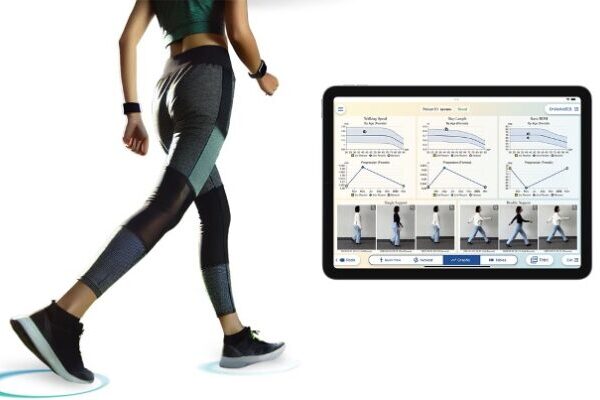
The concept of locomotive syndrome (LS) refers to reduced mobility due to impairment of the musculoskeletal system, which is a major contributor to the need for long-term care. A group of medical and technology researchers has developed a gait analysis device that uses AI to assess LS quickly and simply by just having older people walk a few meters in front of a camera.
Project to Prevent Frailty, Locomotive Syndrome, and Dementia
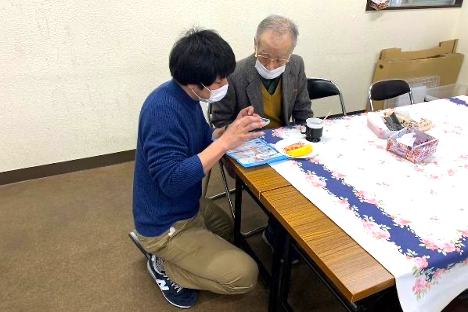
Launched in 2017 as an industry-government-academia project, this initiative offers activities that contribute to the extension of healthy life expectancy among residents of Kaizuka City, focusing on health checks, exercise classes, and volunteer training projects.
0084 Community Health Project—Using a Local Company’s Know-How to Promote a Healthier Community
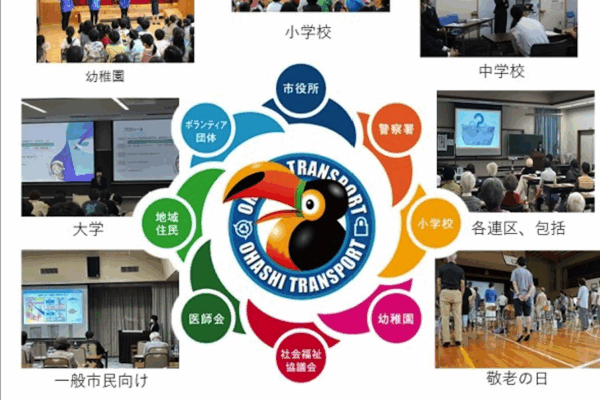
Ohashi Transport Co., a company with headquarters in Seto, had been carrying out in-house health management programs to maintain the mental and physical wellbeing of its employees as a means to improve each person’s vitality and productivity. They recognized that their experience could contribute to the promotion of health for their community, and so began working with the local government to implement a multi-pronged program focused on health education, exercise promotion, and social engagement.
Connecting Education and Welfare through TANO
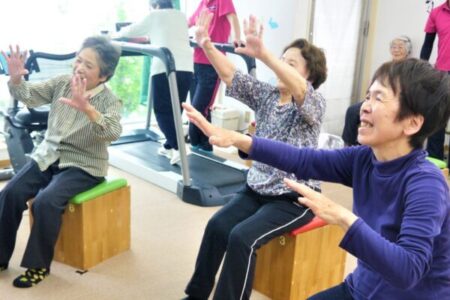
TANO is a non-contact gamification system that promotes movement and social engagement for health promotion and rehabilitation for older people. It is being used in care facilities in Japan and overseas. The initiative seeks to connect education and welfare, promote society-wide cooperation through industry-government-academia partnerships, and create an environment in which children and students can develop an awareness of social issues from an early stage.
NCGG Home Exercise Program for Older People

In response to COVID, a multidisciplinary team of physicians, therapists, and dieticians created an evidence-based Home Exercise Program for Older People (HEPOP), which was published one month later as a booklet and online, offering a menu of exercises and activities that can be easily practiced at home. It was integrated into the Ministry of Health’s Online Kayoinoba (gathering place) app.
Using Data-Based Strategies to Extend Healthy Life Expectancy
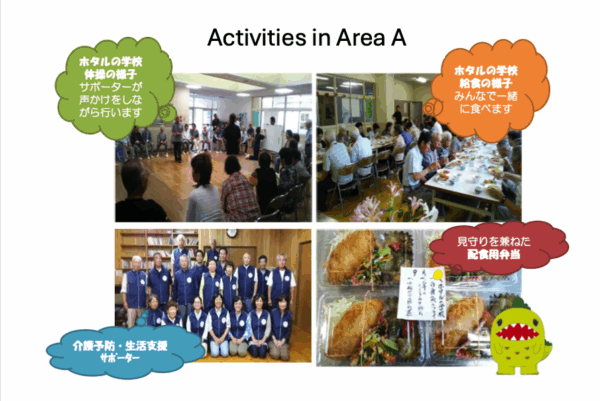
The town of Mifune had been implementing a number of initiatives to promote preventive care and community building for its older residents, so when the percentage of people certified as eligible for long-term care began to rise again, they realized they needed objective data to identify the health problems of the community and strategically address the problems.
Citizen-Based Frailty Prevention Program
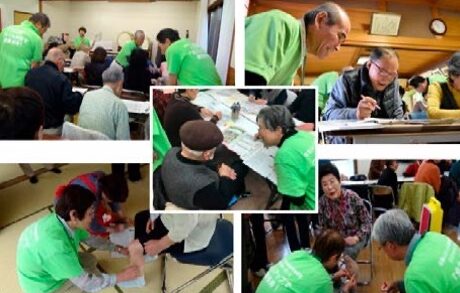
Based on research findings, a new training system was developed for local older people to become resident volunteers, or “frailty supporters.” A peer-to-peer model for “frailty check” activities was developed where older people gather together and carry out a comprehensive assessment to notice changes and modify their behavior together.
Online Exercise Salon for the Elderly through Industry-Academia Collaboration
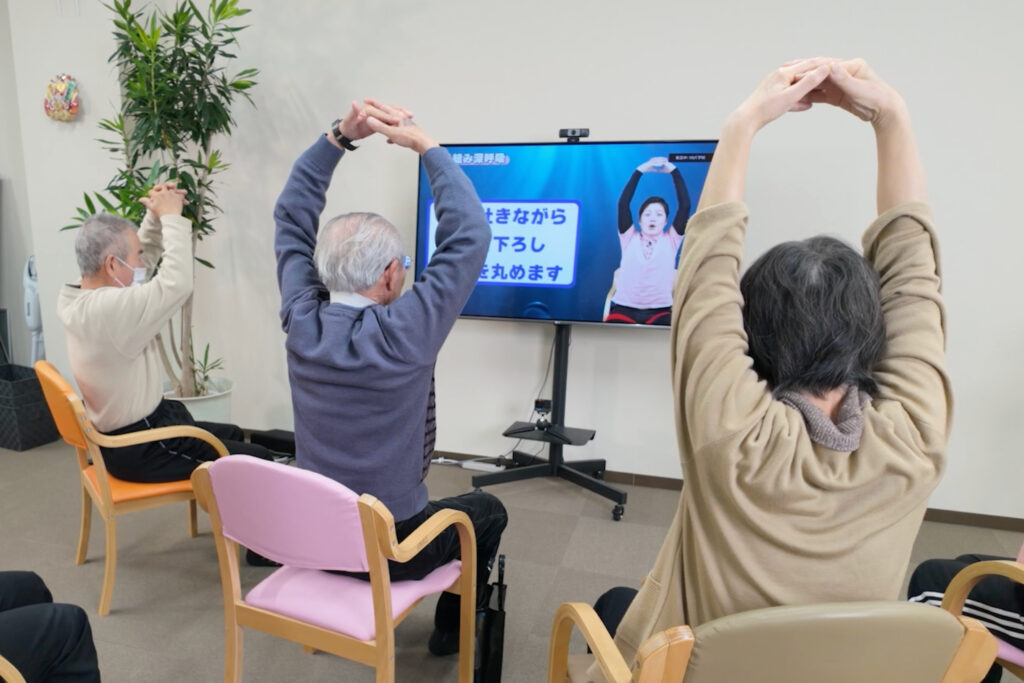
Based on a unique concept of “gut-brain-muscle correlation,” this program offers online exercise and brain health broadcasts on a contract basis to nursing homes. By providing more than 10,000 combinations of evidence-based exercises designed to prevent frailty and maintain health, the salons reduce the need for nursing personnel to spend time and resources creating their own content to keep residents healthy and engaged.
IM-OK Project
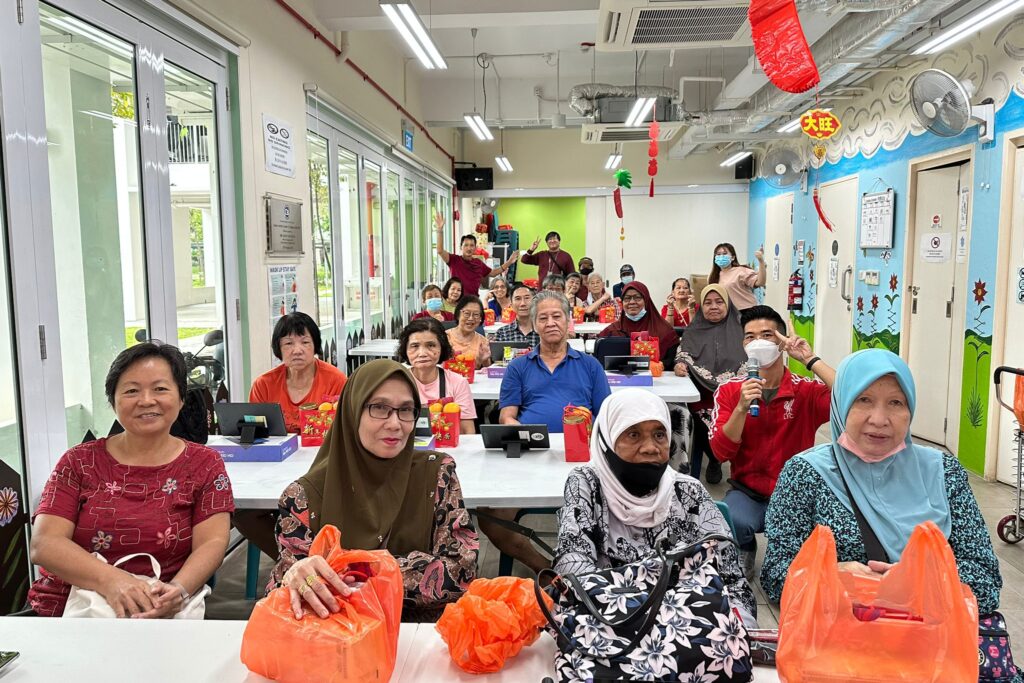
To combat social isolation, the Lions Befrienders Service Association (LBSA) created an easy-to-use elderly-friendly tablet device that lets users monitor and report their daily wellbeing. Pushing an “I am OK”button lets people know they are alright, and any missed check-ins alert family or LBSA volunteers to confirm the person’s safety. The tablet offers entertainment, learning, and health-related functions as well.
Micro-Jobs Program for Older People

The Micro-Jobs Program lets healthy, active seniors assist frailer peers in their neighborhood through tasks such as meal delivery, medication reminders, or accompanying people to doctor’s appointments. The tasks are “bite-size,” so there is a low barrier to entry. Participants are trained and receive a modest allowance in return for the tasks. More importantly, they feel a sense of purpose and engagement with their community.

